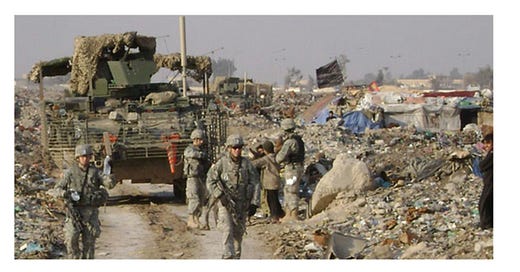https://www.darpa.mil/news-events/2021-11-29
Launched in 2021, DARPA’s ReSource program aims to revolutionize how the military procures critical supplies on the battlefield by engineering self-contained, integrated systems that rapidly produce large quantities of supplies from feedstock collected on-site. Performer teams are tasked with developing systems to break down mixed waste, including common plastics, reformulate the waste at the molecular level into strategic materials and chemicals, and recover purified usable products such as oils, lubricants (POLs), and edible macronutrients. The program is now entering its second phase.
In the first phase, teams from Battelle, Iowa State University (ISU), Massachusetts Institute of Technology (MIT), and Michigan Technological University (MTU), in addition to government partners, successfully established proof-of-concept studies toward the invention of integrated novel waste conversion processes. Battelle partners at the National Renewable Energy Laboratory (NREL) were featured in Science magazine, and ReSource performers at MTU, along with researchers at the University of Illinois, were awarded the coveted 2021 Future Insight Prize for using microbes to degrade plastic waste and produce protein to generate macronutrients ready for immediate consumption. DARPA is working with the U.S. Food and Drug Administration to ensure all relevant safety guidelines are adhered to and regulatory standards are met.
“Part of what makes DARPA special is that we de-risk technologies to enable scientific innovation,” noted Dr. Blake Bextine, ReSource program manager. “All of the teams have passed their Phase I demonstration tests, and I’m looking forward to seeing what they have in store for Phase II.”
In the Phase II, performer teams will build on Phase I accomplishments to develop integrated systems which leverage innovative engineering to function under less optimal conditions, with increased masses of waste to process, and a reduced energy allowance. Possible approaches could include performing pilot tests with simple waste mixtures to prepare for an End-of-Phase demonstration at scale. Results should give a good indication that multiple waste-stream types in a mixture can be converted to upgradable organic intermediate molecules and use these molecules to demonstrate sufficient purity by generating at least one product – food and/or POLs by the end of Phase II.
“There is more energy in the packaging of an MRE (meal, ready-to-eat) than in the MRE itself,” added Bextine. “Through ReSource, we are using science to solve the DoD’s plastic waste dilemma while supporting Humanitarian Assistance and Disaster Relief (HADR) stabilization operations in resource-limited environments.”
Additional information on the DARPA ReSource program is available at: https://govtribe.com/opportunity/federal-contract-opportunity/resource-hr001119s0084.
Image Caption: Credits: DVIDS- Defense Visual Information Distribution Service (https://www.dvidshub.net/image/96686/strykehorse-soldiers-patrol-al-sabiat-landfill)
Discussion about this post
No posts





Next step, soylent green.
Gives new meaning to the term "junk" food. On the menu tonight is Landfill linguini on a bed of micro(plastic) greens, washed down with a nice glass of Petite Styrene Sirah.